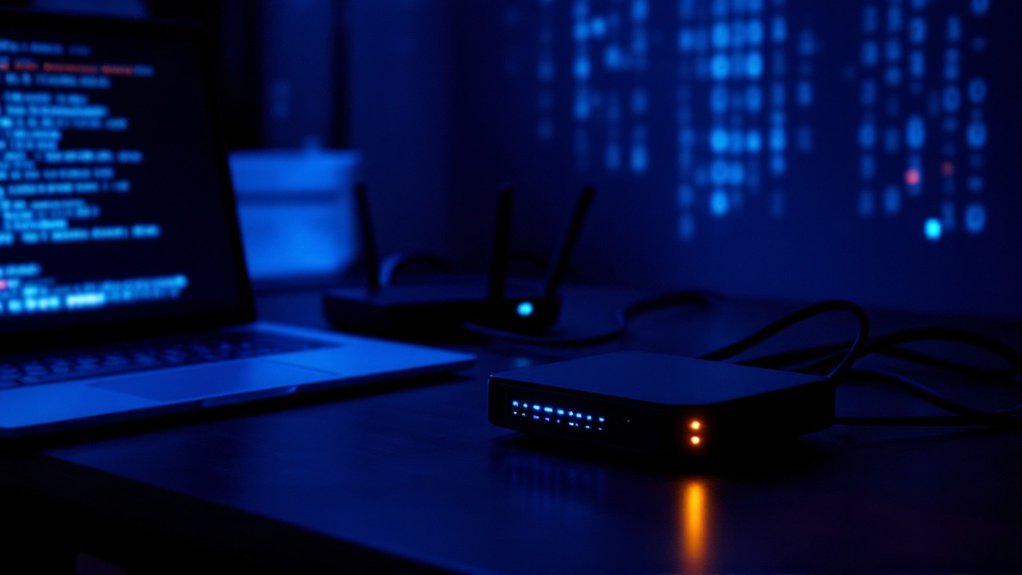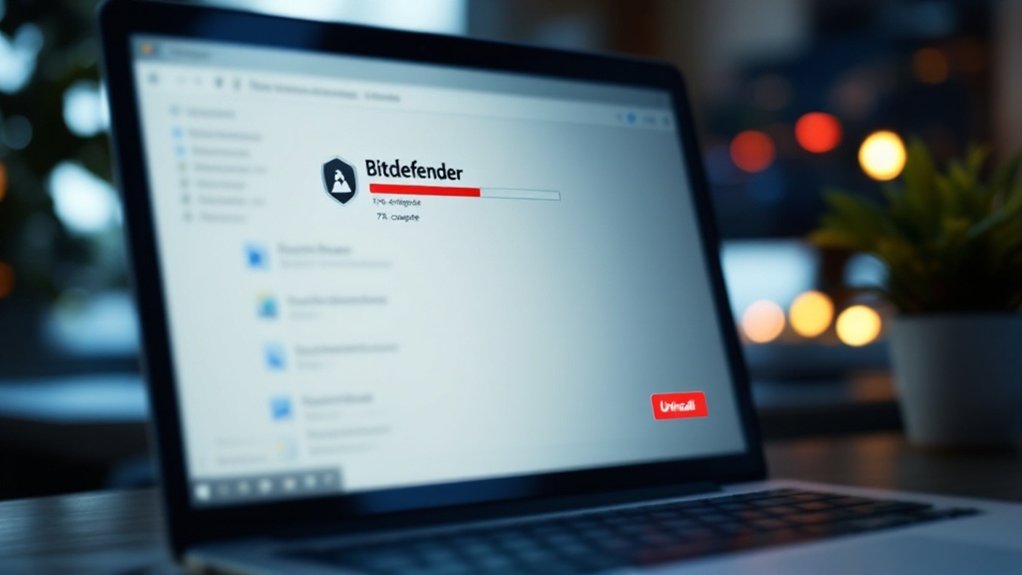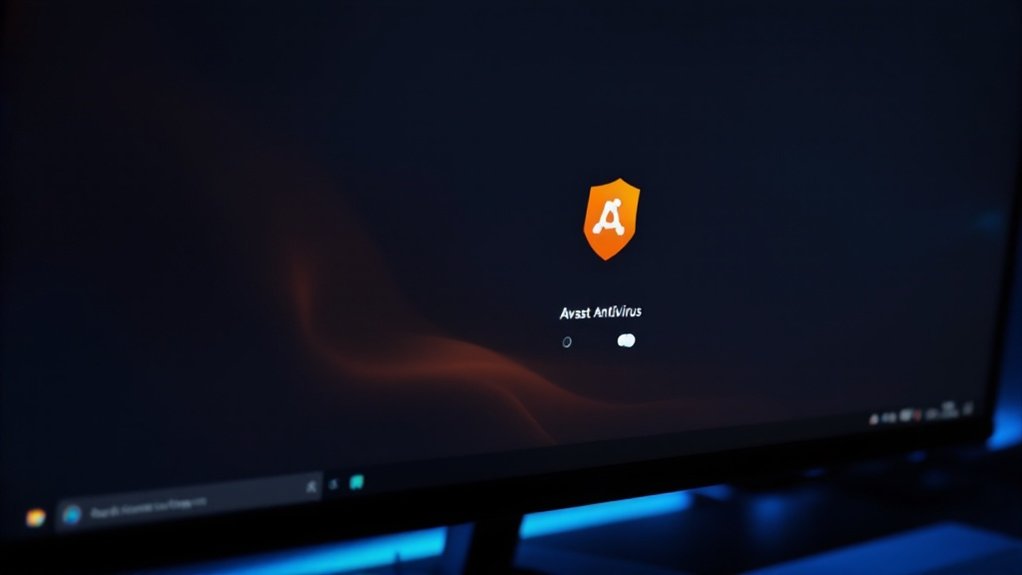Safe torrenting requires multiple security measures, including the use of reputable VPN services to encrypt connections and mask IP addresses. Crucial practices involve selecting verified torrent sites, implementing trusted torrent clients with activated security features, and maintaining up-to-date antivirus protection. Users should exercise caution by checking seeder ratios, verifying uploaders’ reputations, and understanding relevant copyright laws in their jurisdiction. Following detailed safety protocols guarantees best protection during file-sharing activities.

As digital file sharing continues to evolve, users must navigate an increasingly complex terrain of security risks and legal considerations when engaging in torrenting activities.
Security experts consistently underscore the fundamental importance of utilizing a Virtual Private Network (VPN) during torrenting, as it encrypts connections and effectively masks users’ IP addresses from potential monitoring by Internet Service Providers. Real-time protection through antivirus software is essential for scanning downloaded torrent files and catching potential malware.
The selection of reputable torrent sites and clients represents a vital safety measure in the file-sharing process. The decentralized network structure of torrenting enables faster downloads by sharing files in smaller pieces. Experienced users regularly rely on established platforms such as The Pirate Bay and LimeTorrent, as they implement trusted clients like qBittorrent or uTorrent. Using a remote seedbox server can significantly enhance download speeds while maintaining security. These choices considerably reduce exposure to malicious software and potential security breaches that often plague less reputable alternatives.
Proper configuration of torrent client security settings serves as a key layer of protection. Users should activate features such as kill switches to prevent IP leaks, implement IP binding protocols, and activate encryption settings.
Moreover, limiting connections to verified peers and configuring port forwarding can improve both security and performance during file transfers.
The implementation of strong malware scanning protocols remains vital for safe torrenting practices. Users must employ current antivirus software to examine files before opening them, paying particular attention to executable files and maintaining awareness of verified uploader designations.
Statistical analysis of seeder-to-leecher ratios often provides valuable insights into content legitimacy.
Privacy protection extends beyond technical measures into behavioral practices. Users should maintain strict separation between torrenting activities and personal information, avoiding the use of identifiable usernames or connecting social media accounts to torrent profiles.
The utilization of dedicated email addresses for torrent-related activities provides an additional layer of anonymity.
Understanding legal implications remains paramount, as the sharing of copyrighted material carries substantial risks in many jurisdictions.
Users often employ VPNs and seedboxes to minimize exposure to copyright notices, as some opt to focus exclusively on public domain or creative commons content.
Technical optimization, including proper port randomization and protocol encryption, further improves both security and performance in modern torrenting environments.
Frequently Asked Questions
Can I Get Caught Torrenting Even When Using a VPN?
As well as VPNs provide a layer of protection, users can still be identified through various technical vulnerabilities.
DNS leaks, WebRTC exploits, and VPN connection drops may expose real IP addresses.
Moreover, some VPN providers maintain logs that could be subpoenaed by authorities.
Advanced tracking methods employed by copyright holders can potentially bypass VPN protection, and malware in torrents may compromise user anonymity regardless of VPN usage.
What Happens if My ISP Detects Illegal Torrenting Activity?
When ISPs detect unauthorized torrenting, they typically follow a graduated response system. Initial detection usually results in a warning email, whereas subsequent violations may lead to bandwidth throttling or temporary service suspension.
Multiple infractions can trigger permanent account termination and disclosure of user details to copyright holders. ISPs may be legally compelled to forward violation notices, with potential fines reaching hundreds of thousands of dollars for copyright infringement.
Which Countries Have the Strictest Laws Against Torrenting?
Germany maintains some of the strictest anti-torrenting measures globally, imposing fines up to €1000 for first offenses and implementing a “three strikes” policy.
Japan enforces severe penalties with up to 2 years imprisonment for illegal downloads, whereas the United Kingdom permits sentences up to 10 years for copyright infringement.
The UAE imposes substantial fines reaching $270,000 for using VPNs to access blocked content, and South Korea mandates up to 5-year prison terms for file-sharing violations.
How Can I Check if a Torrent File Is Safe?
To verify a torrent’s safety, users should examine multiple verification factors.
Checking trusted sites like The Pirate Bay or 1337x, analyzing seeder counts above 100, and reviewing user comments provide initial security indicators.
File integrity can be confirmed through tools like VirusTotal or QuickSFV, as well as monitoring file extensions and sizes helps identify suspicious content.
Real-time antivirus scanning during downloads offers additional protection against potential malware.
Do I Need Special Hardware or Computer Specifications for Torrenting?
Basic torrenting requires minimal hardware specifications, with 2GB RAM and a dual-core processor being sufficient for standard downloads.
A stable internet connection of 10+ Mbps and 100GB storage space are recommended baseline requirements.
For high-volume torrenting, 8GB+ RAM, quad-core processors, and 1TB+ storage capacity offer peak performance.
Specialized setups like NAS systems or seedboxes can improve capabilities for dedicated torrent users.









